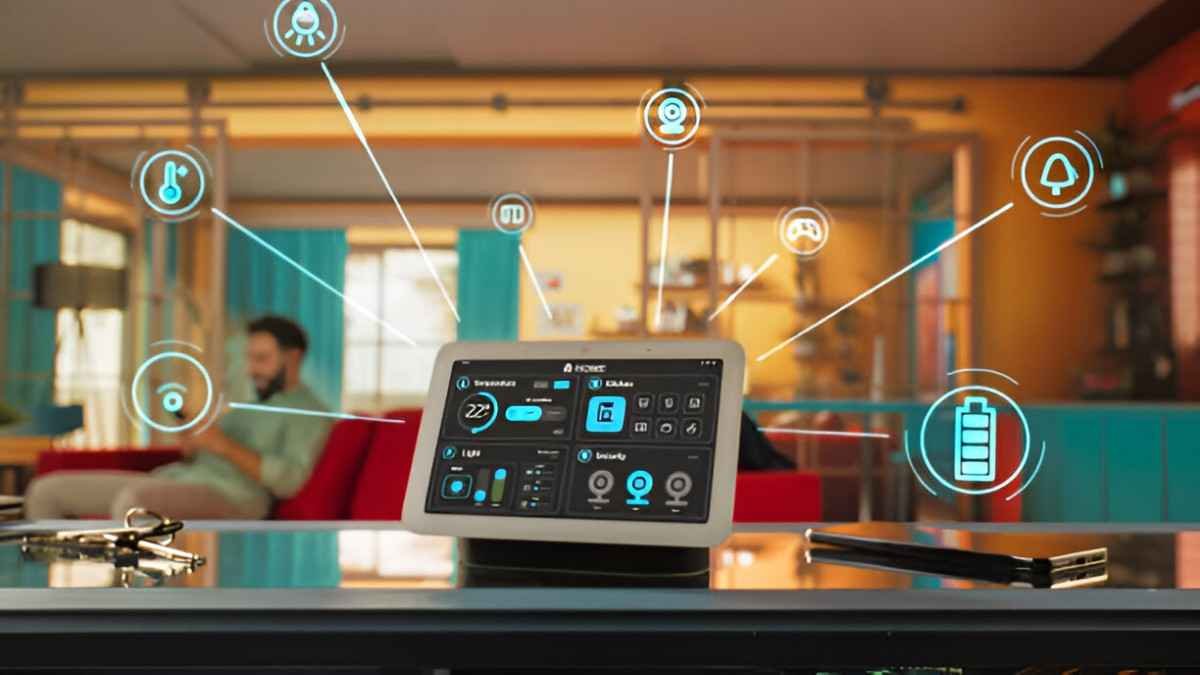When I first started exploring smart home systems, I was a bit overwhelmed by the variety of options out there. I had heard of smart hubs but wasn’t sure where to begin. Over time, I realized that the right smart home hub can make life simpler, more efficient, and even more fun. In this article, I’ll walk you through the best smart home hub systems for automation, highlighting their features, compatibility, and how they stack up against one another. By the end, you should have a clearer understanding of which system might be the best fit for your home.
Table of Contents
What is a Smart Home Hub?
A smart home hub acts as the brain of a smart home system. It connects and manages all your smart devices, from lights and thermostats to cameras and security systems. Without a hub, many of these devices might not communicate effectively with each other. For example, if you have a smart thermostat, smart lights, and a security system, a hub ensures that these devices can work in harmony. Some hubs can also automate tasks, like turning on your lights when you walk into a room or adjusting the temperature based on your routines.
Why Do You Need a Smart Home Hub?
Not every smart home setup requires a hub. Some devices work independently, using Wi-Fi or Bluetooth to connect. But there are plenty of reasons why a hub can be beneficial:
- Centralized Control: Instead of controlling each device individually via separate apps, a hub consolidates them in one place.
- Automation: A hub can automate tasks based on time, events, or triggers (like motion detection or the time of day).
- Improved Compatibility: Some devices only work with specific hubs, while others have more universal compatibility.
- Enhanced Security: Hubs can integrate with security systems, alarms, and cameras, ensuring all your smart devices are synced for greater protection.
Types of Smart Home Hubs
I’ve learned that there are three primary types of smart home hubs:
- Cloud-based Hubs: These hubs rely on cloud services and the internet to manage your devices. They’re often compatible with a wide variety of devices, but they do depend on having a stable internet connection.
- Local Hubs: These are more self-contained and don’t require an internet connection. They operate entirely within your home’s network and communicate with your devices through Wi-Fi or other wireless protocols.
- Hybrid Hubs: A mix of both, these hubs offer the flexibility of cloud control but also allow some local operations. This gives you the best of both worlds, though they can be more complex to set up.
Factors to Consider Before Choosing a Smart Home Hub
As I researched different smart home hubs, I came across several key factors that influenced my decision-making process:
- Compatibility: The hub must work with your existing devices. Some hubs only support specific ecosystems like Amazon Alexa, Google Assistant, or Apple HomeKit.
- Ease of Setup: I found some hubs easy to install, while others required more effort. The simpler the setup, the better, especially if you’re new to smart home technology.
- Automation Capabilities: Automation is a major reason to get a hub in the first place. I wanted one that would allow me to create personalized routines, like turning off lights when I leave home or adjusting the temperature before I wake up.
- Voice Control Integration: Whether you use Alexa, Google Assistant, or Siri, voice control can add convenience. I looked for hubs that integrate well with these services.
- Security Features: Many hubs offer added security features, such as motion detection, camera integration, and smart locks. I found that some hubs were more robust in this area than others.
- App Experience: The app that controls your hub should be intuitive and user-friendly. I often found myself checking the app more than I expected, so a good experience here made a big difference.
Top Smart Home Hubs for Automation
After comparing different options, I’ve narrowed down the best smart home hubs based on my criteria. Below is a table comparing key features of the top contenders.
| Smart Home Hub | Compatibility | Voice Control | Automation Features | Setup Difficulty | Security Features | Price |
|---|---|---|---|---|---|---|
| Amazon Echo (4th Gen) | Alexa, Zigbee | Alexa | Routines, Smart Home Groups | Easy | Camera, Motion Detection | $99.99 |
| Samsung SmartThings Hub (2023) | Z-Wave, Zigbee, Wi-Fi | Alexa, Google Assistant | Advanced Automation | Moderate | Security Integrations | $69.99 |
| Apple HomePod Mini | Apple HomeKit | Siri | Scenes, Automations | Easy | Limited Security | $99.00 |
| Hubitat Elevation | Z-Wave, Zigbee | Alexa, Google Assistant | Advanced Automation | Moderate | Motion Sensors, Security | $149.95 |
| Google Nest Hub (2nd Gen) | Google Assistant, Zigbee | Google Assistant | Routines, Voice Control | Easy | Limited Security | $99.99 |
1. Amazon Echo (4th Gen)
The Amazon Echo is one of the most well-known smart hubs. It’s powered by Alexa and features built-in Zigbee support, meaning it can control a wide range of devices without needing additional bridges or adapters. I was impressed by how easy it was to integrate devices and set up routines. For instance, I could program it to turn on lights and adjust the thermostat based on my location or the time of day. The security features include motion detection and integration with compatible security cameras. It’s also budget-friendly at $99.99.
Pros:
- Easy to set up
- Built-in Zigbee for wide compatibility
- Affordable
Cons:
- Limited advanced automation options compared to other hubs
2. Samsung SmartThings Hub (2023)
The SmartThings Hub is known for its versatility. It supports Zigbee, Z-Wave, and Wi-Fi devices, making it one of the most compatible options available. I found it a bit more complicated to set up, but once everything was configured, the system was incredibly powerful. Its automation capabilities are advanced, allowing you to create highly customized routines. While it lacks voice control on its own, it integrates seamlessly with Alexa and Google Assistant. The hub also has a solid security focus, supporting a wide range of smart security devices.
Pros:
- Supports multiple wireless protocols
- Excellent automation features
- Strong security integration
Cons:
- Slightly more difficult setup
3. Apple HomePod Mini
If you’re already invested in the Apple ecosystem, the HomePod Mini is a great choice. It integrates flawlessly with Apple HomeKit, which means you can control your devices via Siri. I liked the fact that it’s compact and doesn’t take up much space, but the automation capabilities are a bit more limited compared to others on this list. It’s also a bit more focused on voice control than security features, which might be a downside for some.
Pros:
- Seamless integration with Apple devices
- Easy setup
Cons:
- Limited security features
- Fewer advanced automation options
4. Hubitat Elevation
The Hubitat Elevation is a powerhouse in terms of automation, offering highly customizable routines. It supports both Zigbee and Z-Wave, allowing you to connect a wide variety of devices. The setup process was a bit more involved, but the advanced features and local control (no reliance on the cloud) made it worth the effort. I found that it works best for people who want to take full control of their smart home setup. It also includes motion sensors and security options, making it a great choice for home security.
Pros:
- Advanced automation
- Local control (no cloud reliance)
- Great for tech-savvy users
Cons:
- Complex setup
- Higher price point
5. Google Nest Hub (2nd Gen)
The Google Nest Hub is another easy-to-use option, and it’s powered by Google Assistant. The integration with Google’s ecosystem makes it an excellent choice for Android users. The hub has decent automation features, including routines and voice control, and it’s also equipped with sleep tracking features, which can be an added bonus for some. However, when it comes to security, it’s a bit limited compared to some of the other hubs I’ve discussed.
Pros:
- Easy to set up
- Works seamlessly with Google devices
- Affordable
Cons:
- Limited security capabilities
- Not as advanced in automation as some other hubs
Conclusion
Choosing the best smart home hub ultimately depends on your needs. If you want an easy-to-use option with good automation, the Amazon Echo or Google Nest Hub are solid choices. For those who want advanced features and are willing to put in the time for setup, the Hubitat Elevation or Samsung SmartThings Hub offer a lot of flexibility. If you’re already invested in Apple’s ecosystem, the HomePod Mini offers smooth integration, though it’s a bit limited in terms of security features.
No matter which hub you choose, you’ll be able to unlock the potential of a truly connected home. The key is to assess your priorities—whether that’s ease of use, advanced automation, or security—and select the hub that fits your needs best.





